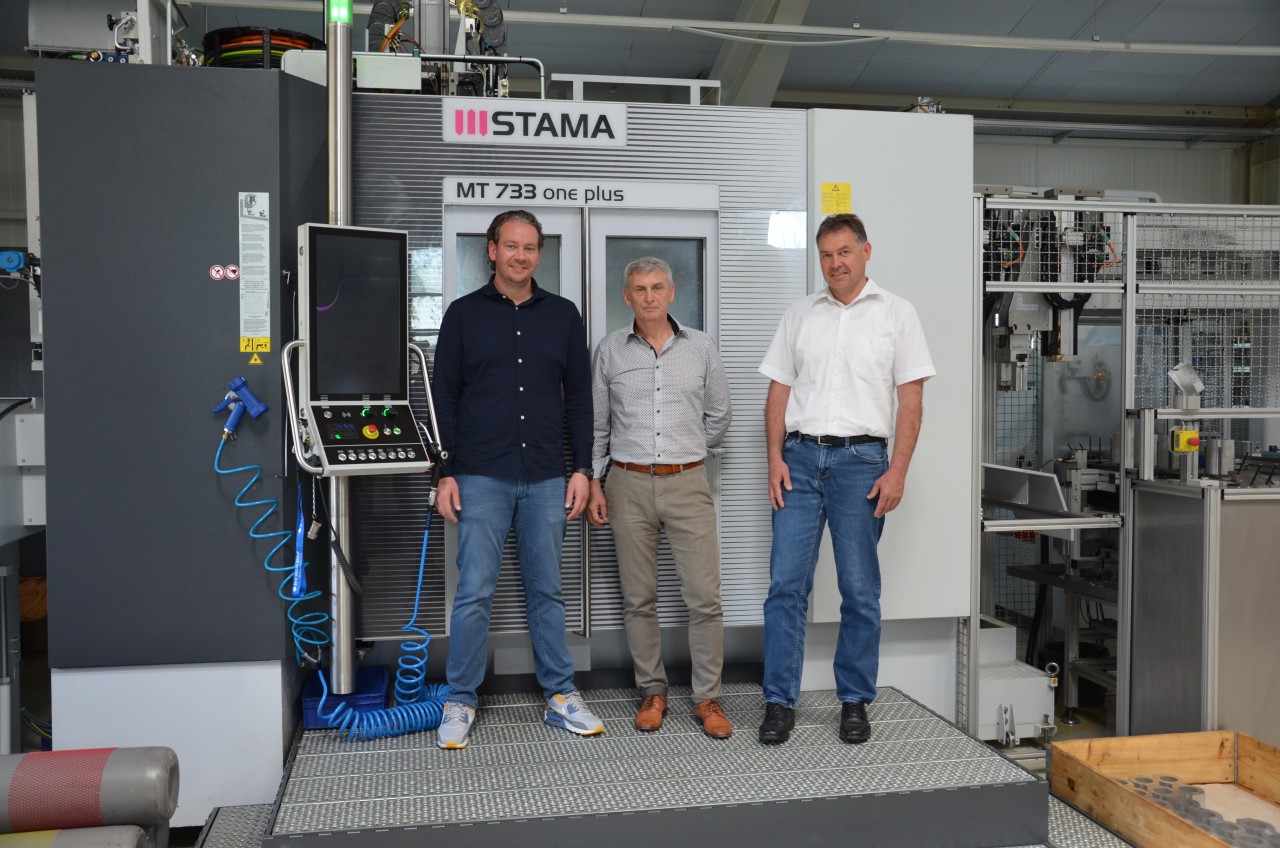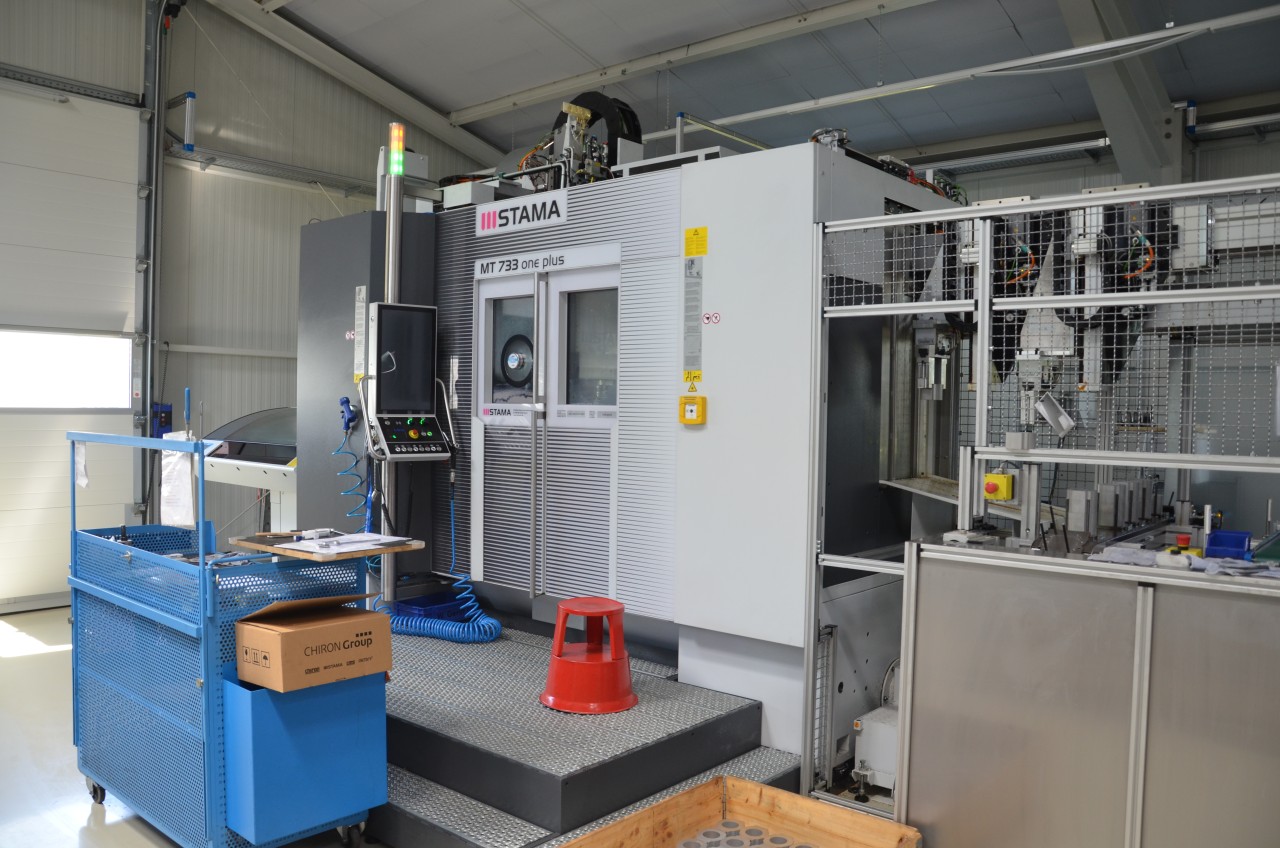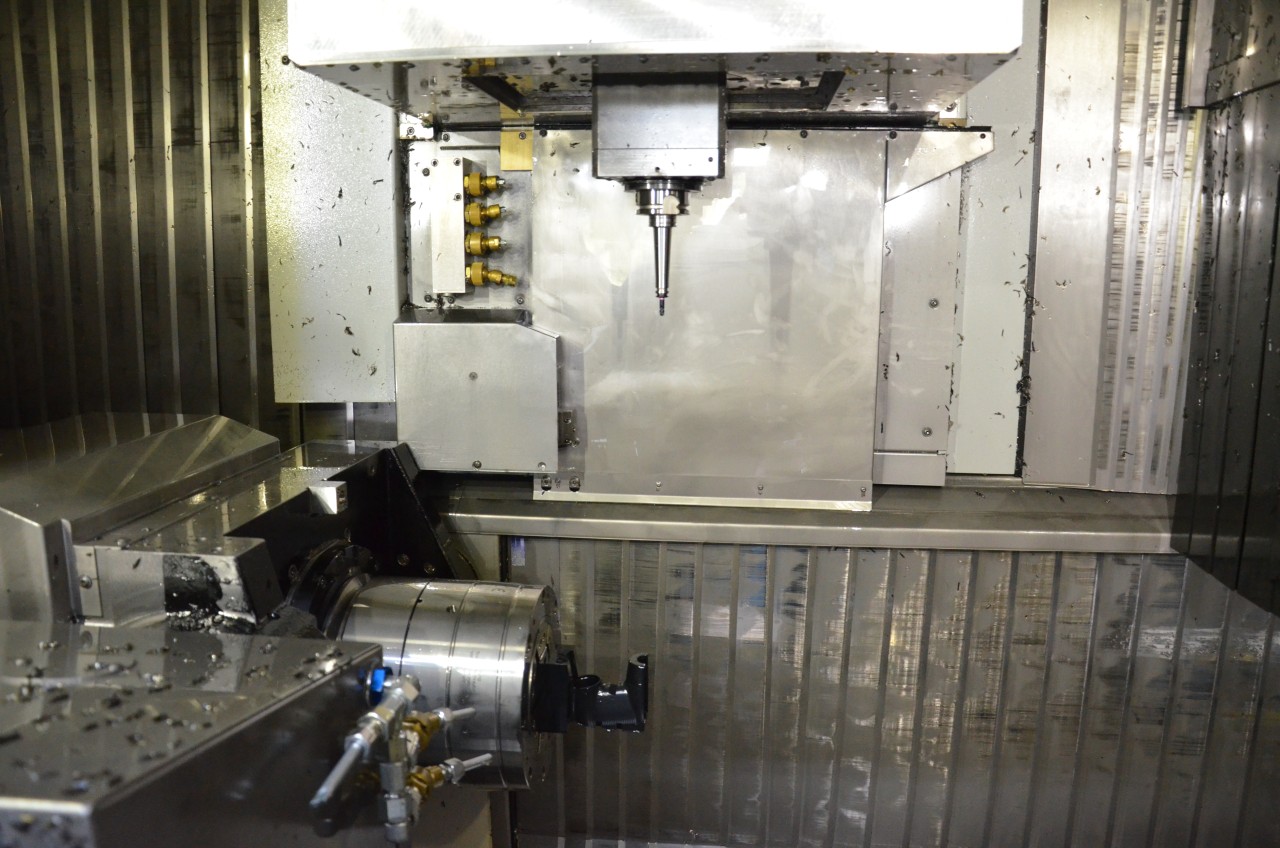Author: Frederick Rindle, mav
»It comes down to the machining expertise and the experience of the skilled workers,« said Wilhelm Gerdt, Managing Director of Gerdt GmbH. »With that in place, a STAMA mill-turn center can be used even for complete machining of small batch sizes of 50 units.« Since its foundation in 1995, the supplier from Villingendorf, Germany has been machining challenging components, destined in particular for medical technology. »Back then, we were one of the first contract manufacturers to also be able to provide simultaneous five-axis milling,« remembers Wilhelm Gerdt.
»This meant we were able to produce very challenging, precise components, and earned ourselves a reputation as a reliable partner in medical technology.« On the search for a machine solution that allows a greater degree of automation, the company founder stumbled across the STAMA MC 526/MT for six-sided complete machining from the bar at an exhibition in 2004. »At the time, the idea of complete machining in series production really fascinated me,« said Wilhelm Gerdt.
»Since then, we have made no further investments in any systems that require an operator to insert the components or do any other activities to ensure that the machine runs. This is largely due to the six-sided complete machining provided by the STAMA machines.« The supplier, which has around 30 employees, produces components with a diameter of 6 to 250 mm in three-shift operation. The company's set-up is also very flexible with regard to the materials: From titanium to aluminum and stainless steel as well as conventional steel, they can machine anything. Not even plastic components pose a problem.

A mutually beneficial team: (from left) Sven and Wilhelm Gerdt, both Managing Directors of Gerdt GmbH, and Peter Rapp, the responsible project engineer at the CHIRON Group. Photo: mav, konradin Verlag
Still in use after 18 years
Around 18 years later and the first STAMA machine is still working reliably, still easily keeping pace with the other machines thanks to its rapid traverse of 60 m/min. Due to the high demand from the outset, the fleet of machines at Gerdt GmbH has now grown to thirteen in part state-of-the-art machining centers. The bulk of the work is performed by the eight mill-turn centers from STAMA. »Complete machining is an essential part of our corporate philosophy. That's why we no longer want to do without the STAMA machines,« said Sven Gerdt.
As the successor, the son of the company founder has long been part of the company management. Most recently, the company invested in the purchase of an MT 733 one+ and an MT 733 two. Both machines score particularly highly due to their gantry design, which significantly improves the thermal, mechanical and static stability of the machines compared to the previous moving column machines. As a result, complex and hard-to-machine workpieces can be milled and turned with high precision. For machining of the sixth side, the MT 733 one+ offers a counter-chuck. »With the MT 733 two, five-axis milling and turning is even possible simultaneously in both clamping positions,« said Peter Rapp, the responsible project engineer at the CHIRON Group, to which STAMA also belongs.
»To enable complete machining of the components on six sides, both sides of the machine were equipped with a milling spindle and a turning spindle each.« The solid and thus rigid base frame of polymer concrete also ensures stability. »Both machining positions can work completely independently of each other, without vibrations impairing the machining result,« said Rapp. The components exit the machine with an unusually high machining quality. There is not usually any need for rework, such as grinding. The high stability is also important in the unlikely event of a crash. »With the STAMA machines, a couple of simple repairs is usually all it takes in order to continue working after a crash,« explained Gerdt. »The mechanical precision of the machines is simply amazing!«

The MT 733 one+ with counter-chuck for six-sided complete machining. Photo: mav, konradin Verlag
Milling 25 percent faster
When machining an aluminum housing for the Hydraulics industry, the productivity of the two centers becomes apparent. »With the MT 733 two, we manufacture the component around 25 percent faster than with our equally modern five-axis machining center from a different manufacturer,« said Sven Gerdt. Despite the unstable clamping situation during machining of the sixth side, the surface quality is still amazing.« Due to the required precision, it is not possible to apply a higher clamping force to the component in the final work step: Over a length of 70 mm, the cylindrical component should have a parallelism of 2/100 mm with a deviation in the cylinder shape of 5 μm. The component is usually manufactured with a deviation of 3.5 μm. »In the clamping technology and machining sequence, a lot is dependent on our expertise, to ensure that the precision is right for every single component,« said Wilhelm Gerdt.
The success of Gerdt GmbH lies largely in the vast wealth of experience of its employees and the passion with which the components are automatically milled with high precision. With this expertise, the machining experts are also able to efficiently manufacture batch sizes ranging from 50 to 50,000 units on the STAMA machines. »Since our skilled workers organize and implement orders entirely independently, from planning the machining to ordering the materials and tools and on to quality assurance, and are therefore also responsible for the quality of the components, it is preferable if the small batch sizes are backed up by larger total quantities of 500 to 600 units. Otherwise the planning costs are too great,« said Wilhelm Gerdt. The high reliability of the STAMA machines has also resulted in the supplier scheduling an unmanned shift between the night shift and the early shift. »As a company owner, you can only sleep easy at night if you know that the machines are running reliably,« said Wilhelm Gerdt. »With the STAMA machines, I sleep very well even during the unmanned hours.«

Gerdt GmbH produces tailor-made, precision components. Photo: mav, konradin Verlag
Impressive expertise
»It's impressive how much knowledge of complete machining can be found at Gerdt GmbH,« said Peter Rapp. »The machining solutions for the 400 or so different components are so sophisticated that each component leaves the machine fully automatically and finished to the required quality. That in itself is a truly unique selling point. »The meticulous attention to detail behind this is also noticed by the STAMA experts during acceptance of each machine. »Wilhelm and Sven Gerdt are always personally involved in the acceptance process for the machines and even run the machines in themselves,« said Rapp. »We support them with our experts from the different areas, so that in the end we have an optimal machine.«
The individual turnkey solution concept at STAMA is important here. That's because the experts from Villingendorf, Germany often need different solutions than the customers from large series production. So, for example, optimized drives for five-axis machining have already been installed in the second spindle of an older machine concept or different delivery solutions have been planned. The STAMA experts are also always on hand to provide advice and assistance when new machining cycles are needed. »Overall, the partnership collaboration with Gerdt GmbH has also helped us as a machine manufacturer,« said Rapp happily. »Because the solutions developed in this way are then of course also available to our other customers.«
»The service at STAMA, which has now been integrated in the CHIRON Group but is still based in Schlierbach, Germany is still aimed at helping the customer as quickly as possible and as best can be, « said Wilhelm Gerdt, obviously satisfied. »That's why we will continue to rely on STAMA mill-turn centers in future too.« »Of course, we are also hoping for the creativity and innovative spirit of the experts at STAMA,« said Sven Gerdt. »A further evolutionary leap in machine technology, as was the case with the introduction of simultaneous five-axis milling, would be of great benefit to the unrivaled position of machining.«

